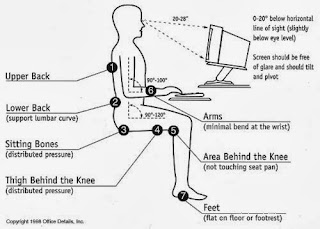Anyone who has seen me in clinic knows that I talk about anti-inflammatory foods, and diets...about supplements that reduce that systemic inflammation that we all carry to some degree...
...so, here's an update on all the things that contribute to that inflammation that is present:
- poor diet and lifestyle
- obesity
- chronic infections
- toxicity
- stress
"...great, so I need to address those things - but how??"
...some of it is pretty obvious: incorporate more movement into your daily lifestyle, avoid chemicals wherever possible, and find some healthy stress management practices (yoga and meditation are two that come straight to mind)...and then, we can talk about your diet...
...some of it is pretty obvious: incorporate more movement into your daily lifestyle, avoid chemicals wherever possible, and find some healthy stress management practices (yoga and meditation are two that come straight to mind)...and then, we can talk about your diet...
(my nephew will be so proud of me for putting that pic in)
...there are a number of foods known to trigger inflammatory responses within our digestive systems: grains and sugar come right up at the top of the list...reducing your intake of these (or excluding them almost completely) will help decrease your body's level of inflammation...
...there are also a number of supplements and nutrients that will reduce your body's levels of inflammation too:
...there are also a number of supplements and nutrients that will reduce your body's levels of inflammation too:
"...okay, okay - so there's a lot of things I could do to reduce inflammation...but why is it such a concern??"
...it's simple - we're starting to realise that inflammation is a major precursor to a lot of modern diseases that debilitate our people, and cost our governments a large amount of money in prevention:
...it's simple - we're starting to realise that inflammation is a major precursor to a lot of modern diseases that debilitate our people, and cost our governments a large amount of money in prevention:
...in fact, the medical industry are becoming very vocal that our previously believed causes of disease are, in truth, secondary to inflammation within the body...inflammation is now our new "bad guy" when it comes to our health...
























